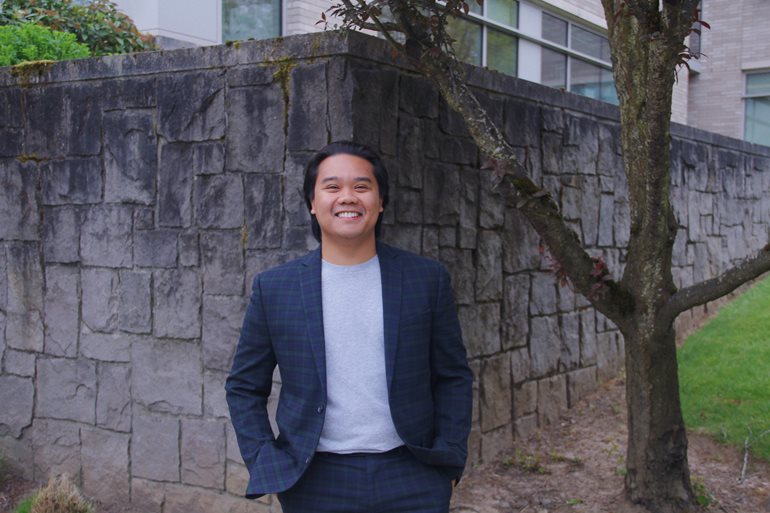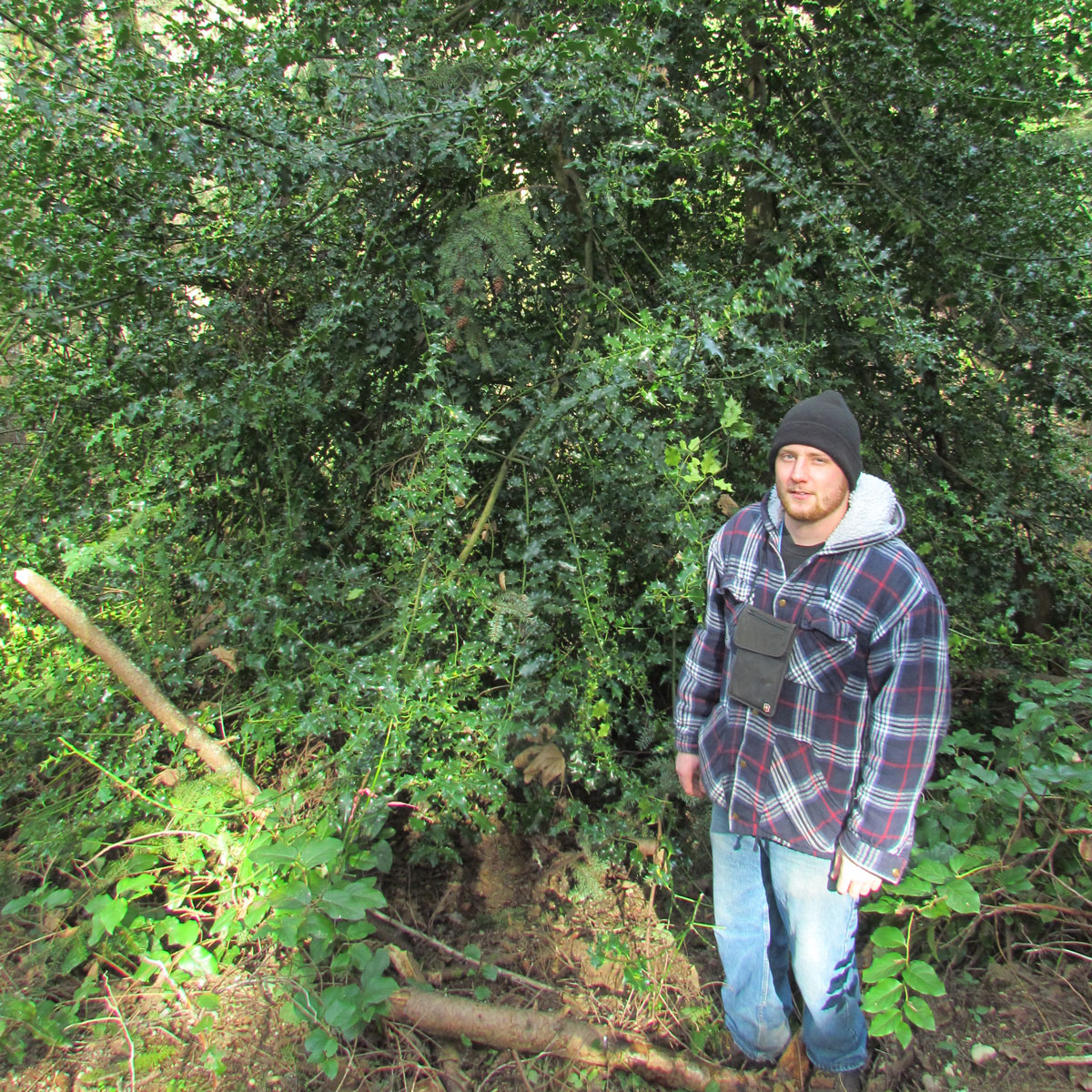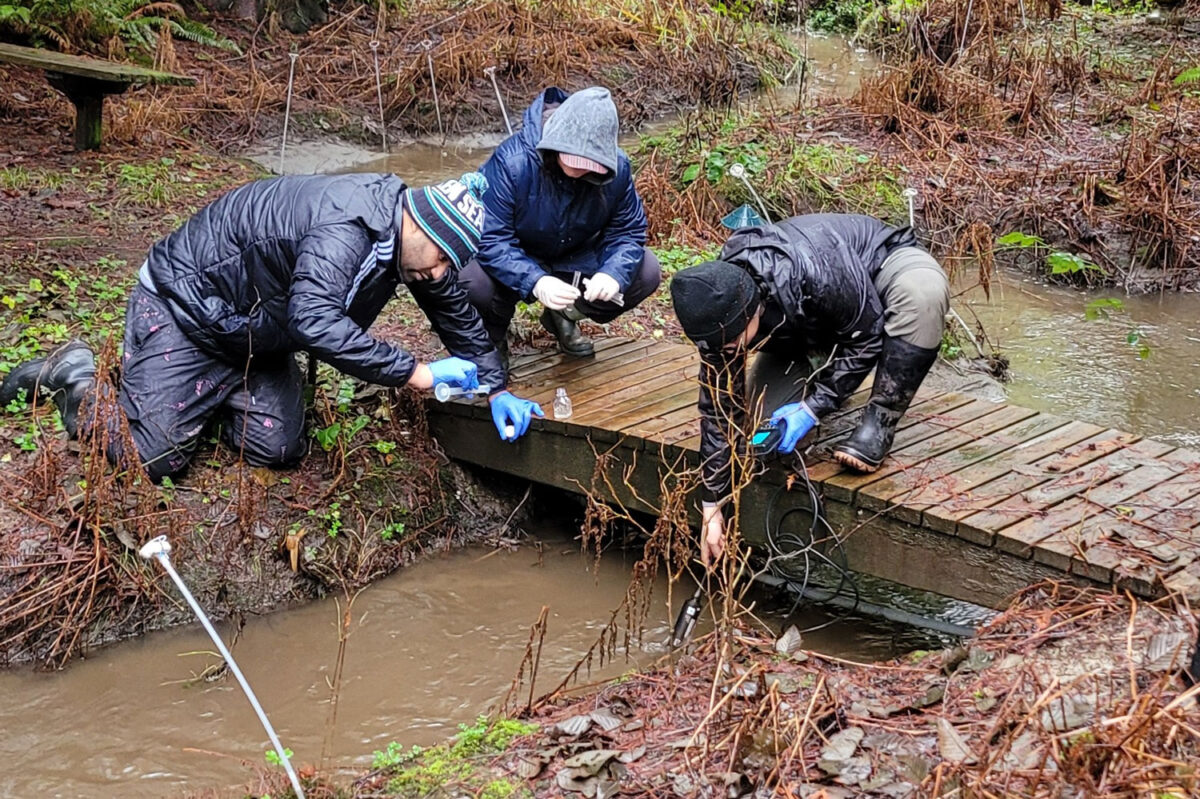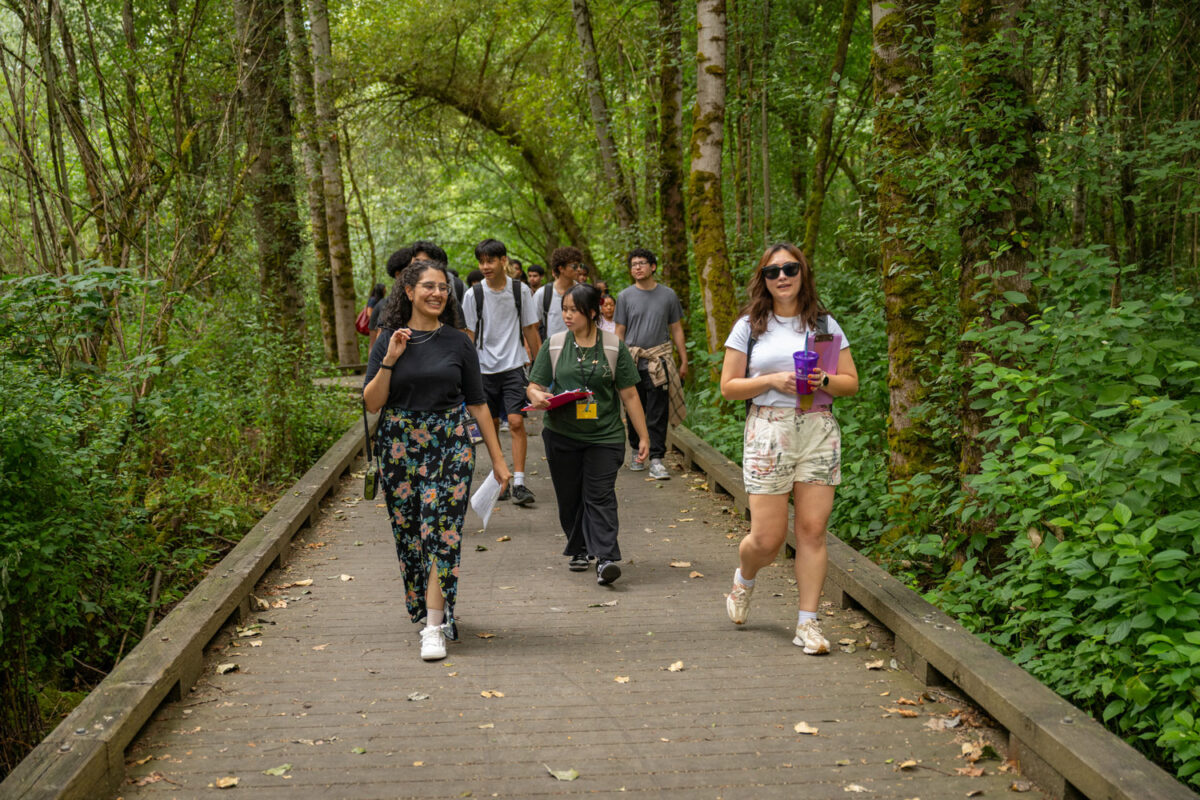Humility, compassion, community — these are the values that drove recent graduate Michael Albellar to pursue a career in medicine. They are also the reason that, in this pursuit, he has achieved great success.

While working toward his degree in Biology, with a minor in Neuroscience, Albellar became immersed in his educational community. He was elected into the Associated Students of the University of Washington Bothell, the campus student government, and immediately started advocating for non-traditional students. He helped create academic degree “maps” to help first-generation students navigate college. And he started a series called “Mental Health is Wealth” to help his peers learn healthy ways to cope with anxiety and stress.
“I was inspired by Khalil Gibran, a renowned philosopher who has a quote about people who give with joy and consider the joy to be their reward,” Albellar said. “That philosophy of giving is why I dedicated so much of my time to making the University a better place for my fellow students.”
Aside from joy, Albellar has also been rewarded with recognition as one of this year’s Husky 100. Each year, the UW recognizes 100 undergraduate and graduate students from the Bothell, Seattle and Tacoma campuses who are making the most of their time at the University. The recipients actively connect what happens inside and outside of the classroom, applying what they learn to make a difference on campus and in their communities. Albellar is one of 12 students from UW Bothell to be recognized in 2021.
Giving without expectation
As a son of Filipino immigrants, Albellar said he learned the gift of giving from his parents. “It wasn’t hard to see that my parents’ sole dedication to my future was as much a sacrifice as it was a gift,” he said.
As the senator of student advocacy in ASUWB during the 2019-20 academic year, Albellar made a point to continue their legacy of giving. One of his first projects was co-developing academic degree maps, an initiative that showed students a streamlined degree pathway and simplified their selection of courses necessary to get admitted into a specific major. The degree maps also proposed ways to become competitive in a job market.
“While we made this for all students, this initiative especially helps first-generation students like me whose parents can’t help them navigate the system of higher education or set up professional connections,” he said.
In the process of creating the maps, Albellar led focus groups to determine students’ needs, collaborated with campus leadership to help meet those needs, and managed the outreach and marketing for the launch event that attracted more than 150 students.
“I had the joy of hearing their stories of how the maps would help them take the right courses to graduate on time. Hearing their excitement made me proud,” he said. “I got a sense of what my parents must have felt like when I told them I wanted to pursue medicine as a career, one of their dreams for me.”
Mental health is wealth
After the outbreak of COVID-19 and the shift to remote learning, Albellar’s role in student government shifted drastically. “Talking with my peers and fellow students online, I saw firsthand how the pandemic was damaging their sense of belonging, purpose and confidence in completing their studies,” he said. “One student confessed to me that the isolation they felt almost drove them to drop out of school completely.”
As a pre-med student, Albellar knew about the important role mental health plays in contributing to people’s sense of well-being, which is why he developed the online series “Mental Health is Wealth.”
“My goal was to offer students several opportunities to express their frustrations; educate them on how to detect anxiety, stress and imposter syndrome; and help them develop healthy coping mechanisms,” Albellar said. To do this, he involved certified mental health counselors from the Counseling Center. He also worked with staff from the Student Diversity Center to ensure the series was inclusive and resonated with the racially varied student population.
“Everyone who attended gave positive feedback. One student said that they were extremely grateful to hear other students’ stories and that it gave them a sense of community and comfort knowing they weren’t dealing with these feelings alone,” Albellar said. “This experience taught me the value of not only bringing people together to discuss their needs and unique situations but also listening and hearing what they are saying.
“It will serve me well as a physician as ideally, doctors should promote social, economic, political and educational changes that mitigate the suffering and threats to patient health and well-being. If they don’t, we will continue to see health care disparities that predominantly impact marginalized identities.”
Catalyst to change
Albellar said his involvement in student government reinforced the importance of giving to one’s community, a lesson his parents had instilled in him. “This propelled me to grow into a servant leader who demonstrates and promotes diversity, equity and inclusion by truly listening to others about their specific needs — and working to fulfill them,” he said.
Sam Al-Khoury, director of Student Engagement & Activities and adviser of ASUWB, said Albellar cared deeply about the success of his fellow students. “From his efforts implementing the academic maps that help students identify degree pathways to his managing multiple volunteer opportunities for students in ASUWB, Michael demonstrated time and again that he was willing to work very hard to help students make the most of their time at UW Bothell.”
Once again, the acting of giving became its own reward.
“My work through student government brought out my voice,” Albellar said, “and I will continue to use it.”



